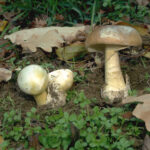
The Food Safety Information Council, together with their partner Environmental Health Australia, today released a report card on Australia’s food safety record in the lead up to the Third UN World Food Safety Day to be held on 7 June 2021. This year’s theme, ‘Safe food today for a healthy tomorrow’, stresses that production and consumption of safe food has immediate and long-term benefits for people, the planet and the economy.
Council Chair, Cathy Moir, said that in an average year there are an estimated 4.1 million cases of food poisoning in Australia that result in 31,920 hospitalisations, 86 deaths and 1 million visits to doctors.
‘Ms Moir said that this past 12 months has seen a mixed report card for Australian food safety:
✔︎Less diagnosed food poisoning. During 2020 there were fewer diagnosed cases of Campylobacter and Salmonella infections although a specific reason for this has not been identified[i]. Much of this reduction could be due to restaurant and food business closures during the COVID-19 lockdowns, as a lot of food poisoning outbreaks are linked to food service. There were also fewer international travellers who may have acquired food poisoning overseas. People may have also been less likely to seek medical attention and provide a specimen for diagnosis. Additionally, there may have been impacts on laboratory testing capacity.
✔︎Handwashing improves after the toilet. We saw an improvement in some handwashing with our 2020 Omnipoll handwashing survey finding a 4% increase in the number of people who said they always wash their hands after going to the toilet (up from 79% to 83%).
✖︎Handwashing decreases before food preparation. Unfortunately, there was also a 5% drop in the number of respondents (from 63% to 58%) saying they always washed their hands before handling food.
✖︎Need to close the gender gap. There is still a gender gap in food safety knowledge between men and women. For example, men were less likely than women to say they always wash hands after going to the toilet (80% of men versus 85% of women) and before touching food (53% of men versus 62% women).
✖︎Need to close the age gap too. Our recent Omnipoll national handwashing survey found only 75% of respondents between 18 and 34 years said they always washed their hands after going to the toilet (compared with 89% of over 50s). Only 55% of respondents between 18 and 34 years said they always washed their hands before handling food (compared with 61% of over 50s). This is a concern as young people will often go on to work as food handlers either as a full time or part time job or have jobs caring for vulnerable groups in the child, aged care and disability sectors.
✖︎Stop picking or eating those wild mushrooms. Poisons Information Centres around the country have reported increased calls from people who may have eaten poisonous mushrooms, especially as wild mushrooms have been growing profusely this year after wet weather.
‘Finally, a big fail for some of the social media giants such as Facebook and WeChat who continue to advertise unregulated food for sale. Don’t risk buying from an illegal seller with these signs: is the location you collect the food from a home address, does the vendor have proof they have a food licence or are a registered business and is the food a much cheaper price than you would usually pay? If in doubt don’t take the risk.
‘Whether you are a home cook, want to set up a food business or volunteer fundraiser and you’d like to learn more about food safety we have some easy to use and cost effective resources on our website at https://foodsafety.asn.au/topic/food-safety-training/,’ Ms Moir concluded.
Philip Swain, National President Environmental Health Australia, added ‘Food Safety is everyone’s responsibility whether in the home or as a worker in a food business. And the basics are simple, washing hands before handling food, ensuring perishable food is stored and served at correct temperatures, and ensuring cross contamination from surfaces to food isn’t occurring. So if you need assistance or advice don’t hesitate to contact your local government Environmental Health Officer. They’ll be happy to help!’
Media contact:
Lydia Buchtmann, Food Safety Information Council, 0407 626 688 or info@foodsafety.asn.au
* Communicable Disease Intelligence v45 2021 p3



